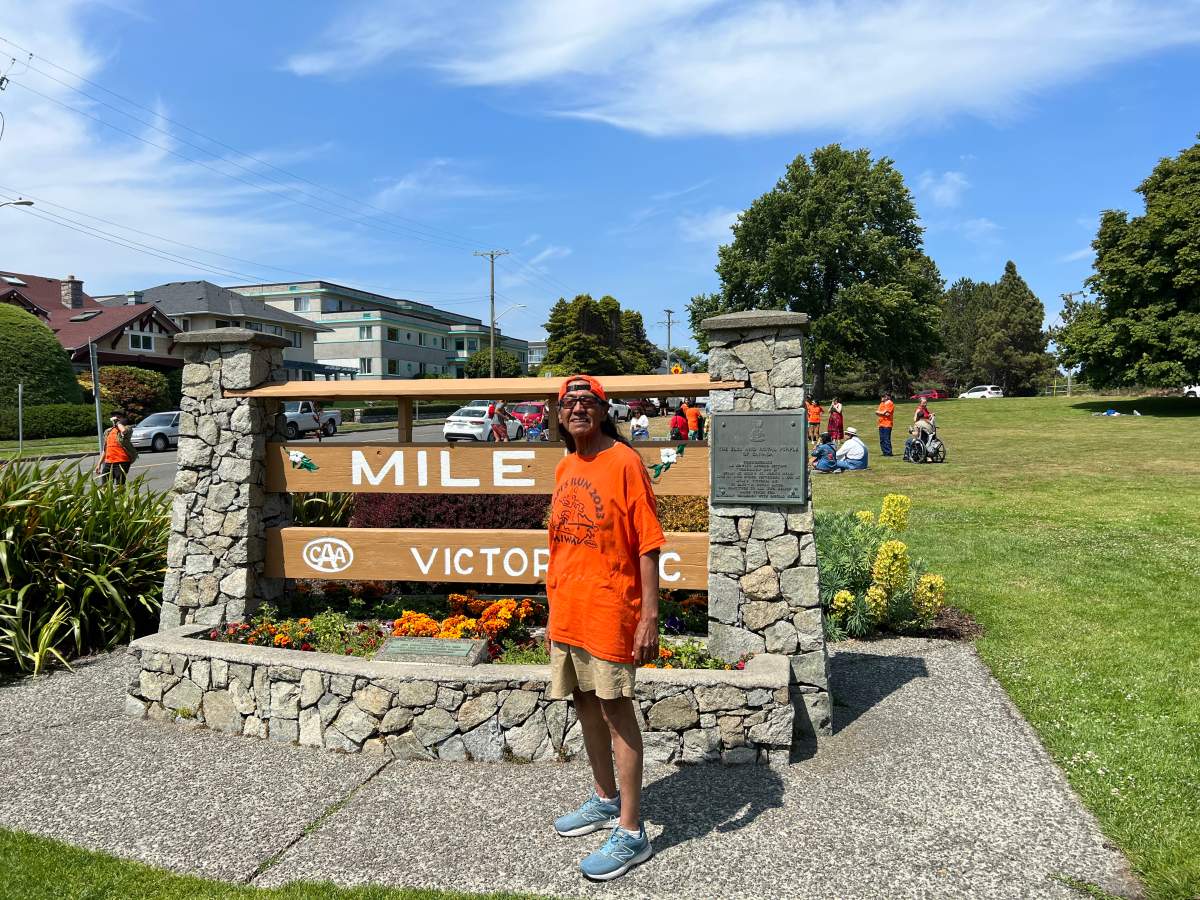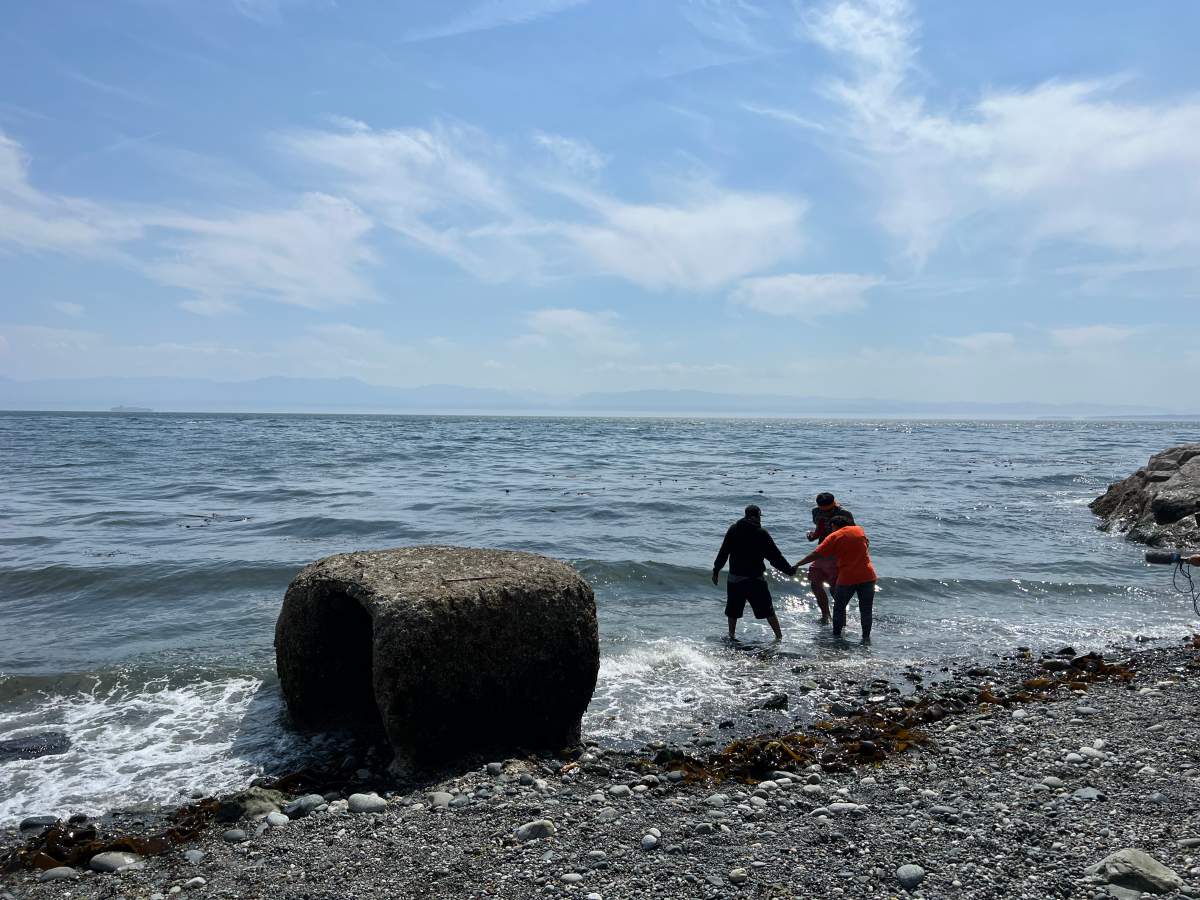Looking for more Indigenous news? Find our stories here.

“Hi Terry, I told you I was gonna make it,” said runner John Bare Shin Bone as he tapped the back of the Terry Fox statue at Mile 0 in Victoria, B.C.
It’s been a long 86-day journey for the 65-year-old who set off from St. John’s, Newfoundland on April 12 to complete a cross-Canada run for Missing and Murdered Indigenous Women and Men (MMIWM) and Mother Earth.
Napi’s Run 2023 — named after the Blackfoot trickster — came from a dream Bare Shin Bone had where he saw a highway road sign that read “St. John’s Newfoundland 58 kilometers away.”
The Blood Reserve runner questioned why he was seeing the sign when he was in southern Alberta.
“I’m on the west … but my spirit was way on the other side … it was such a beautiful dream that lasted right through the night and I was running,” said Bare Shin Bone.
Then he thought about what it might be like to run across Canada and decided to do it for his nephew, Jovian Big Head, who was murdered in 2009.
Bare Shin Bone has been running and road racing since the 1980s and Terry Fox is a huge inspiration of his. “When my knees would give up I’d think about him and run with a double hop,” he said. “(Terry Fox) gave me so much confidence to keep going, never to stop.”

Get breaking National news
The run was completed relay-style by a dedicated team from the Blood Reserve and led by Bare Shin Bone; people — both Indigenous and non — would join along the way.
“I had a really good team, I had five of the best runners on the reserve,” said Bare Shin Bone. “When we were in St. John’s I was really scared, I’m not even a leader and I’m leading a team across Canada … (but I ) believe in miracles, believe in dreams.”

Sharing updates regularly on Facebook, Indigenous people from across the country would ask the runners to dedicate a portion of the day’s run to friends, family or loved ones.
“For all the MMIWM across this country who never made it home, that’s who we ran for,” said Ramona Big Head, Bare Shin Bone’s niece. “Every day we would pick an individual or families would send us messages saying ‘Could you run for my sister, could you run for my son, for my granddaughter?'”
These names helped the runners run with a purpose.
Albertine Crow Shoe, a councilor from the Piikani Nation, was asked by Big Head for names of MMIWM in their community. “We started gathering names and there was a lot of them, a lot of names of people that left home and never came back,” said Crow Shoe. “It really hit home, this run shows Canadians it’s not just one person, this is all across Canada and this is something people have to live with.”
An inspiration to many, Bare Shin Bone completed a run some didn’t think he could.
“John has become a role model,” said Crow Shoe. “When things don’t look possible, he makes them look possible — look at the effect it’s had.”
All across the country the runners were welcomed and hosted by various First Nations: drummed in, sung out, offered food and sometimes a place to stay for the night. When the runners reached Alberta, people from their community met them along the highway.
“My uncle was gifted with a traditional Blackfoot headdress and the ceremony was performed at Blackfoot Crossing,” said Big Head. “It was a highlight for me … to be able to do what we did was really unbelievable.”
“I don’t think we fully realized just how epic this is, just how many people would be coming up to us and telling us that this is a spiritual journey for them, when they’d take the staff and run with us for a bit.”







Comments